Russians unhappy with President Vladimir Putin’s regime have fled the country en masse ever since he came to power on the last day of 1999.
Over the past 18 years 1.5 to 2 million Russians have left, both for economic and political reasons, according to Levada Center, a Russian research firm.
The latest trigger for emigration was the beginning of Russia’s war against Ukraine in 2014, which intensified Russia’s conflict with the West and increased its international isolation.
However, annual emigration had been steadily increasing since 2010, according to Russia’s Federal State Statistics Service.
The reasons are manifold: a lack of democratic institutions and free speech, political persecution and worsening economic conditions as a result of the sanctions imposed on Russia due to its war against Ukraine.
The backgrounds of the political exiles are also varied, ranging from those who have criticized Putin since he came to power, to those who used to cooperate with the Russian authorities, but fell afoul of him and his cronies.
Here are 10 of the most prominent exiles who have left Russia.
Mikhail Khodorkovsky
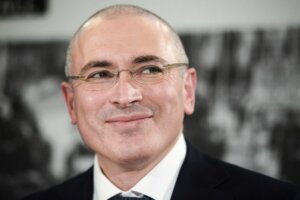 Mikhail Khodorkovsky, then one of Russia’s wealthiest tycoons and founder of oil company Yukos, was arrested in 2003 after he started financing opposition parties and became involved in a personal conflict with Putin.
Mikhail Khodorkovsky, then one of Russia’s wealthiest tycoons and founder of oil company Yukos, was arrested in 2003 after he started financing opposition parties and became involved in a personal conflict with Putin.
He was sentenced to nine years in prison in 2005 on charges of tax evasion and fraud in what was widely seen as a political vendetta. In an apparent effort to keep him in jail after his prison term ended, Russian authorities gave him an additional prison term in 2010 on charges of embezzlement and money laundering, with his lawyers arguing he was effectively being sentenced for the second time for the same alleged crime.
Khodorkovsky was eventually released and moved to Switzerland after Putin pardoned him in 2013.
In 2011, the European Court of Human Rights ruled that the Russian courts had made numerous violations during the Khodorkovsky case.
Since 2014, Khodorkovsky has focused on developing his Open Russia platform, which has been heavily involved in Russian opposition politics and civil society.
Khodorkovsky has consistently criticized the Kremlin’s war against Ukraine. He said at a Freedom House event in 2014 the war was being waged to preserve the power of Russian “kleptocrats who are trying to prolong a regime that is past its due date.”
“(The war), which has caused such a euphoria among ordinary people, will result in numerous misfortunes for the Russian people,” he said.
In 2015 Russia’s Investigative Committee charged Khodorkovsky with murdering Vladimir Petukhov, mayor of Nefteyugansk in the Khanty-Mansi Autonomous District. The charge is seen by Khodorkovsky’s supporters as payback for his opposition activities.
Garry Kasparov
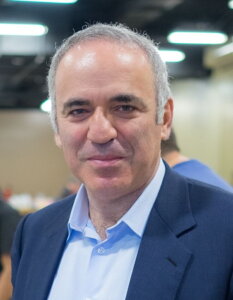 Garry Kasparov, a former chess grandmaster, has consistently been a thorn in the side of the Kremlin.
Garry Kasparov, a former chess grandmaster, has consistently been a thorn in the side of the Kremlin.
Kasparov, who founded the United Civil Front liberal group, has been arrested and beaten at opposition rallies. In 2005 he was attacked by an assailant who struck him over the head with a chessboard.
He emigrated to the United States in 2013 and now heads the Human Rights Foundation in New York, focusing on fighting the Kremlin on the international scene.
“Germany between World War I and World War II resembles Russia a few years ago,” he said in 2015. “Epithets used in newspapers in the 1990s about the fuhrer of Germany are similar to current descriptions of Putin.”
Yulia Latynina
 Writer and columnist Yulia Latynina has been a vocal critic of the Kremlin for many years. Latynina, a self-professed libertarian, hosts Access Code, a show on the Echo of Moscow radio station.
Writer and columnist Yulia Latynina has been a vocal critic of the Kremlin for many years. Latynina, a self-professed libertarian, hosts Access Code, a show on the Echo of Moscow radio station.
She also co-founded the 2008 Committee, an opposition group that fought for fair presidential elections in 2008.
Latynina left Russia after she was attacked with a pungent and caustic type of gas sprayed throughout her house and after her car was set on fire in 2017. In 2016 she was also attacked with feces.
Since then, she has lived in the United States and Europe.
Marat Guelman
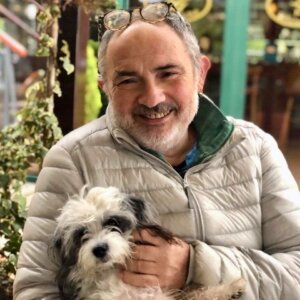 Marat Guelman, an art manager and political consultant, used to cooperate with the Kremlin as a co-founder of the Effective Policy Foundation, a top executive of the state-controlled Channel One and as part of his Cultural Alliance art production studio.
Marat Guelman, an art manager and political consultant, used to cooperate with the Kremlin as a co-founder of the Effective Policy Foundation, a top executive of the state-controlled Channel One and as part of his Cultural Alliance art production studio.
But in 2012 he broke ties with the Russian government. In 2013 he was also fired as head of the Perm Contemporary Art Museum after its exhibitions triggered condemnation by the Russian Orthodox Church.
In 2014 he moved to Montenegro, saying that he didn’t want to support Russia due to its aggressive actions, but didn’t want to oppose it either because he’s a Russian citizen.
“The war in Ukraine triggered negative developments in Russia and became a clear indicator that Putin was leading (the country) to a total conflict between Russia and the whole world,” Guelman told the Kyiv Post. “I left because I didn’t want to be either against my country or against myself.”
Andrei Illarionov
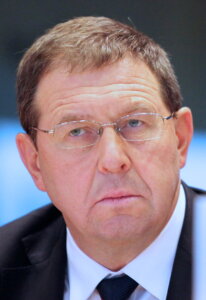 Economist Andrei Illarionov was an advisor to Putin in 2000 to 2005 and is considered to be the architect of free-market reforms carried out early in Putin’s reign. However, by the end of his term as an advisor to Putin, Illarionov had become more and more critical of the Kremlin.
Economist Andrei Illarionov was an advisor to Putin in 2000 to 2005 and is considered to be the architect of free-market reforms carried out early in Putin’s reign. However, by the end of his term as an advisor to Putin, Illarionov had become more and more critical of the Kremlin.
Since his resignation, he has become an opposition leader and regularly taken part in anti-Putin protests.
In 2006 Illarionov became a senior fellow at the Cato Institute, a libertarian think-tank in the United States, and now splits his time between Washington D.C. and Moscow.
Evgeny Chichvarkin
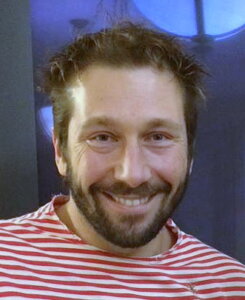 Businessman Evgeny Chichvarkin, another critic of the Kremlin and also a libertarian, founded Evroset, Russia’s largest mobile phone retailer, in 1997.
Businessman Evgeny Chichvarkin, another critic of the Kremlin and also a libertarian, founded Evroset, Russia’s largest mobile phone retailer, in 1997.
In 2005 Russian law enforcers started an investigation into the alleged illegal import of mobile phones by Evroset, but the accusations were later dropped. In 2008 the Russian authorities also started an investigation into the alleged kidnapping by Evroset executives of an employee whom they accused of stealing mobile phones worth 20 million rubles (about $800,000, at that time).
Chichvarkin sold Evroset in 2008 to Kremlin-friendly oligarch Alexander Mamut, saying he did so under law enforcers’ pressure, and emigrated to London.
Later Russia placed him on the wanted list as part of the kidnapping case, which was closed in 2011. Chichvarkin denies the accusations and sees the case a political vendetta.
In 2012 Chichvarkin opened Hedonism Drinks, a wine producer, in London.
Artemy Troitsky
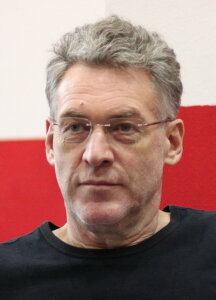 Artemy Troitsky, a music critic, moved to Estonia in 2014, attributing his decision to Russia’s aggression against Ukraine.
Artemy Troitsky, a music critic, moved to Estonia in 2014, attributing his decision to Russia’s aggression against Ukraine.
“My motivation was reluctance to live in a fascist militaristic state and have my children live there,” he told the Kyiv Post.
He added that he had been left out of work for political reasons and faced several libel lawsuits from people linked to the authorities.
He still visits Russia but is concerned about his security there.
“My wife panics each time I cross the Russian border,” he said.
Ilya Ponomaryov
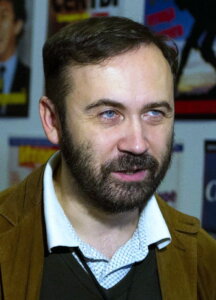 Ilya Ponomaryov, an ex-member of Russia’s State Duma representing the Just Russia socialist party, co-led street protests against Putin in 2011 to 2012. He was also the only member of Russia’s State Duma to vote against its annexation of Ukraine’s Crimea in 2014.
Ilya Ponomaryov, an ex-member of Russia’s State Duma representing the Just Russia socialist party, co-led street protests against Putin in 2011 to 2012. He was also the only member of Russia’s State Duma to vote against its annexation of Ukraine’s Crimea in 2014.
He came under pressure due to his opposition activities and moved to the United States in 2014 and to Ukraine in 2016.
“I believe the key to introducing real change in Russia is in Ukraine,” he told the Kyiv Post. “Ukraine’s success will greatly increase the chances for positive developments (in Russia).”
In 2015 the Russian authorities opened a case against Ponomaryov, accusing him of defrauding 22 million rubles ($350,000) from the Skolkovo technology hub in Moscow Oblast by failing to fulfill a contract to deliver lectures. He denies the accusations.
Boris Akunin
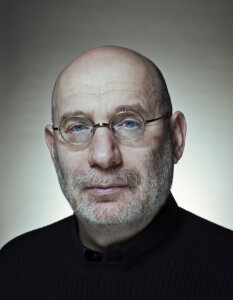 Boris Akunin, a writer known for his detective stories and historical fiction, has lambasted Putin’s domestic and foreign policies, including the annexation of Crimea in 2014.
Boris Akunin, a writer known for his detective stories and historical fiction, has lambasted Putin’s domestic and foreign policies, including the annexation of Crimea in 2014.
He moved to France after Russia launched its war against Ukraine in 2014.
“I don’t have anything in common with Putin’s Russia, everything there is alien to me,” he said then in his blog. “It has become difficult for me to live there during the universal madness.”
Anton Chadsky
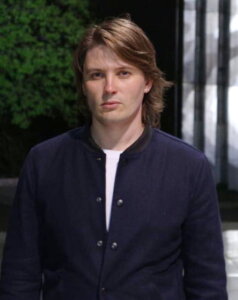 Anton Chadsky used to be an activist of the pro-Kremlin Nashi group and an official at the Novorossiysk city government in Krasnodar Region.
Anton Chadsky used to be an activist of the pro-Kremlin Nashi group and an official at the Novorossiysk city government in Krasnodar Region.
However, by 2011 he had become an opposition activist and authored the concept of vatnik – the Russian word for a cotton-wool wadded jacket famous for its use in the Soviet GULAG prison system – as well as a vatnik-clad cartoon character. This has since become a universal term for pro-Kremlin and pro-Russian people, both in Russia and Ukraine.
Chadsky moved to Ukraine in 2014, when the Russian authorities opened a criminal case against him for a party at which he ridiculed Russian propaganda by serving a cake in the form of a “Russian-speaking baby.”
He used to cooperate with Ukraine’s Information Ministry in countering Russian propaganda but now works as a designer.
He said he didn’t rule out a collapse of Putin’s regime due to its international isolation and added that he could return to Russia in that case.
“No regime can be isolated (for a long time), and this isolation is increasing,” he told the Kyiv Post.
